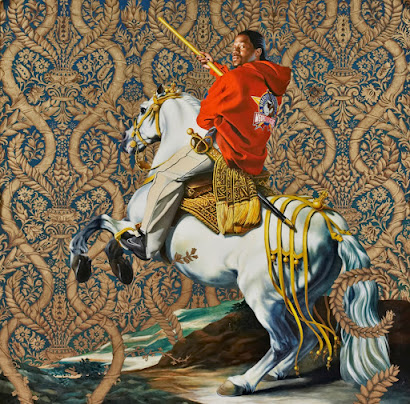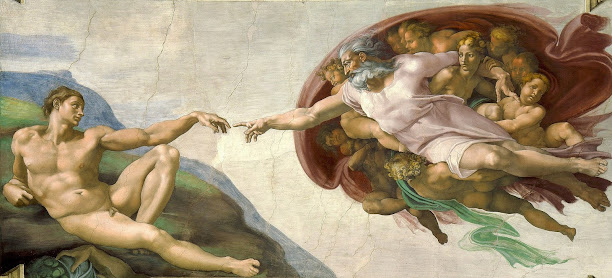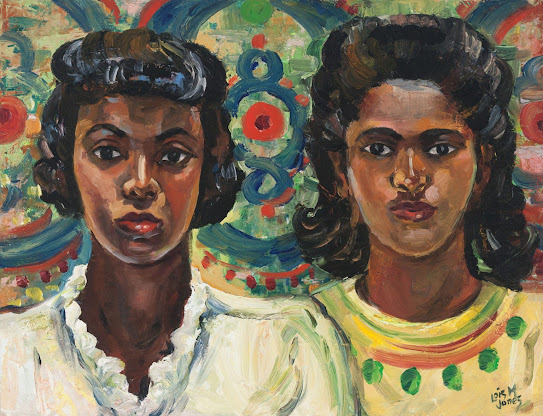Fighting Invisibilty?
Having now finished
Invisible Man, I find that there is an aspect of the novel that I am
conflicted about and have been since the prologue: the narrator’s acceptance of
his invisibility. In the prologue, when the narrator is first introducing the
concept of invisibility, he says, “I am not complaining, not am I protesting
either. It is sometimes advantageous to be unseen, although it is most often
rather wearing on the nerves” (3). I find this passage interesting because the narrator
is explicit about the hardships of being invisible (and then proceeds to write
a whole book about them), but he also seems rather accepting of his
invisibility.
On one hand, I
think it would be impossible for the narrator to be “visible.” His invisibility
is completely out of his control and has entirely to do with the fact that he
is a black man living in a racist society. Additionally, before discovering his
invisibility, the narrator unknowingly makes a lot of effort to be seen (mostly
in his endeavors for success, especially in the Brotherhood) and none of it
pays off. On the other hand, should the fact that visibility is impossible for
the narrator to achieve really prevent him from protesting invisibility? I
think the way the narrator was fighting invisibility before realizing his
invisibility—rather passively and unaware of what he was fighting—was a futile way
to go about it. But now that the narrator has greater awareness of his
invisibility and the problems at hand which cause it, perhaps he could protest it
in a meaningful way and, if not abolish it, at least bring attention to it.
Maybe the book is the narrator’s attempt to bring attention to the concept of
invisibility, but it doesn’t quite feel like a protest of invisibility.
I am still unsure
as to whether invisibility is even something that should be fought. I tend to
think that it is because, to me, invisibility seems almost synonymous with
oppression. At the very least it is a product of being oppressed. However, the
narrator takes a great deal of comfort in his realization of his invisibility,
and he seems to think of it as a personal identity. He even says that he “did
not become alive until [he] discovered [his] invisibility” (7). Perhaps the
narrator takes comfort more so in understanding that he is invisible rather
than in being invisible, but I still get the impression that the narrator embraces
his invisibility. After all, by the end of the novel he shapes his entire life
around being invisible.



I agree that the narrator stirs up no small amount of confusion by seemingly taking comfort in invisibility, despite simultaneously providing fodder to protest invisibility. It's especially weird if invisibility is all about race, which I'm no longer sure it is. In that case, what would happen if the narrator directed his attention onto other black characters - could he *see* their invisibility? Can anyone see someone's invisibility? (Do we as readers see the narrator's invisibility?) And if invisibility almost encompasses the narrator's identity, it is then mostly about other people's inability to see at once all of the parts of him and his identity? That kind of invisibility seems unavoidable and maybe not something to protest, so I'm not sure it's that either.
ReplyDeleteAnyways, this comment ended up being much more rambly than the original one (which got deleted) and the replacement one (which also got deleted).
Curse you, Blogspot.
It definitely seems weird that the narrator is so accepting of his invisibility and that he kind of gives up on trying to become visible. This idea reminds me of Irving Howe's critique of the book's failure as a protest novel. I initially didn't understand Howe's perspective, but now I can kind of see where he's coming from since the narrator doesn't really resist the injustices that are inflicted on him by an oppressive society.
ReplyDeleteThis comment has been removed by the author.
ReplyDeleteI really like this post, and I've thought about this a lot while reading the book as well. Given that invisibility, for the narrator, means not being able to present his real self to others, I'm not sure how I feel about him being so happy and acceptant of it. I agree with you that his invisibility stems from oppression, and thus would like to see the narrator fight it in a meaningful manner. On the other hand, perhaps if we interpret the story as a journey of self-discovery, the narrator realizing his invisibility might be equivalent to him finally finding himself and realizing his true identity--this might explain why he feels so "alive" after realizing his invisibility.
ReplyDelete